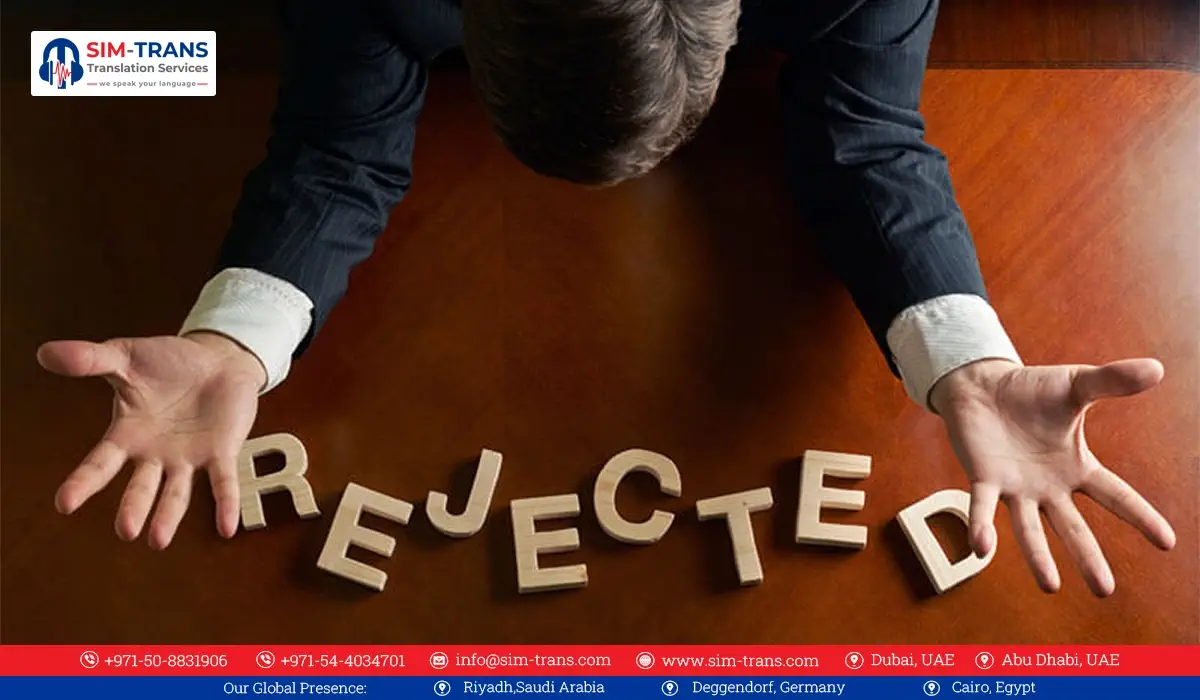Recognizing your foreign educational qualifications in the United Arab Emirates (UAE) is crucial for employment and further education opportunities. This recognition comes in the form of an equivalency certificate issued by the UAE Ministry of Education (MOE). However, applications for equivalency certificates can sometimes be rejected.
The rejection of equivalency certificates can be a distressing setback for many aspiring professionals and students.
This article explores the reasons for rejection and offers guidance on navigating the process.
What is Equivalency Certificate UAE?
Equivalency Certificate is an official document the Ministry of Education issued, confirming the compatibility of foreign educational qualifications with UAE standards. It’s essential for individuals educated abroad who want to pursue further studies, employment, or professional licensing in the UAE. The certificate validates that their qualifications meet UAE educational criteria.
This certificate process typically involves submitting various documents to the relevant authorities, including:
- Academic Transcripts
- Certificates
- Supporting Materials and many more
These documents are reviewed and assessed to determine their equivalence to UAE educational standards regarding content, duration, accreditation, and other pertinent factors.
To read more: What is Equivalency Certificate UAE?
Why Equivalency Certificate UAE Matter?
Equivalency certificates are crucial because they validate the compatibility of foreign educational qualifications with UAE standards. They matter for individuals educated abroad who aim to pursue higher education, seek employment, or obtain professional licensing in the UAE.
Without an equivalence certificate, their qualifications may not be recognized, hindering their ability to access educational and employment opportunities within the country.
Common Reasons for Rejection

Here are some reasons for rejection.
1. Missing or Incomplete Documents
Insufficient or improper documentation is one of the leading causes of equivalency certificate rejection. Missing transcripts, incomplete application forms, or improperly notarized documents can lead to immediate disqualification.
2. Non-recognition of Institutions
Equivalency certificates are often denied when the issuing institution or program is not recognized by the UAE’s Ministry of Education or relevant regulatory bodies. This lack of recognition casts doubt on the quality and authenticity of the qualifications, prompting rejection.
3. Discrepancies in Curriculum
Differences in curriculum content, duration, or accreditation standards between the applicant’s educational background and UAE requirements can result in rejection. Such variations may lead authorities to question the adequacy and relevance of the qualifications. Therefore, ensure that the information on your documents matches your passport (name, dates).
4. Unaccredited Programs
Whether regionally or internationally, programs or institutions lacking proper accreditation face scrutiny during the equivalency evaluation process. Without recognized accreditation, the legitimacy and credibility of the qualifications may be questioned, leading to rejection.
5. Online or Distance Education
Due to accreditation concerns, online or distance education may lead to rejection of the UAE equivalency certificate. United Arab Emirates authorities prioritize recognized institutions, potentially causing rejection if the program needs accreditation. Applicants should ensure their programs meet UAE standards to avoid this issue.
What to Do if Your Application is Rejected
1. Request Clarification
The MOE rejection notice should outline the reason for the rejection. If unclear, contact the MOE for details.
2. Gather Missing Documents
If documents are missing, please compile and submit them according to MOE requirements.
3. Appeal the Decision
You can usually appeal a rejection within a specific timeframe (often 3 months). Gather supporting evidence to strengthen your case. The MOE website provides information on the appeals process.
Additional Tips
1. Seek Professional Help
Please consider using documents attestation services to ensure your documents are correctly prepared and attested. If you want to attest your documents and need certified translation services in Dubai, choose Sim-trans, a leading translation company in Dubai.
At Sim-trans, our team of translators is highly skilled and culturally fluent, ensuring a deep understanding of nuances, terminology, and cultural context. With expertise in various languages and industries, our translators deliver accurate and culturally sensitive translations that resonate with diverse audiences. Trust our translators to convey your message effectively and authentically.
2. Stay Updated
UAE regulations can change. Check the MOE website for the latest requirements.
Understanding the reasons for rejection and taking proactive steps can increase your chances of successfully obtaining your UAE equivalency certificate.
To read more: How Can I Get a Legal Translation License in UAE?
Navigating the Rejection Challenge
1. Comprehensive Research
Before initiating the equivalency process, individuals should conduct thorough research on the requirements and criteria of the UAE authorities. Understanding the prerequisites and expectations can help applicants prepare more effectively, reducing the likelihood of rejection.
2. Seek Professional Assistance
Navigating the intricacies of equivalency procedures can be daunting. Seeking guidance from educational consultants or legal experts like Sim-trans Translation Company, who are well-versed in UAE regulations, can streamline the process and minimize the risk of rejection. Our professionals offer valuable insights and assistance in preparing documentation and addressing potential concerns.
3. Addressing Deficiencies:
In cases of rejection, applicants should carefully review the reasons provided and take prompt action to address any deficiencies. This may involve obtaining additional documentation, pursuing further education or training to meet UAE standards, or appealing the decision with relevant authorities.
4. Explore Alternative Pathways:
If traditional equivalency routes prove challenging or unattainable, exploring alternative pathways to validation and recognition is essential. This may include pursuing professional certifications, vocational training, or enrolling in accredited bridging programs to align foreign qualifications with UAE standards.
To read more: How to Get Equivalency Certificate in UAE?
Conclusion
In conclusion, obtaining an Equivalency Certificate in the UAE is vital for validating foreign qualifications. Rejection reasons include:
- Missing Documents
- Unrecognized Institutions
- Curriculum Discrepancies
If your application is rejected, don’t panic. Please quickly address issues, appeal if needed, and seek professional help. Request clarification, gather missing documents, and consider appealing the decision.
By understanding rejection reasons and navigating effectively, individuals can enhance their chances of success.


